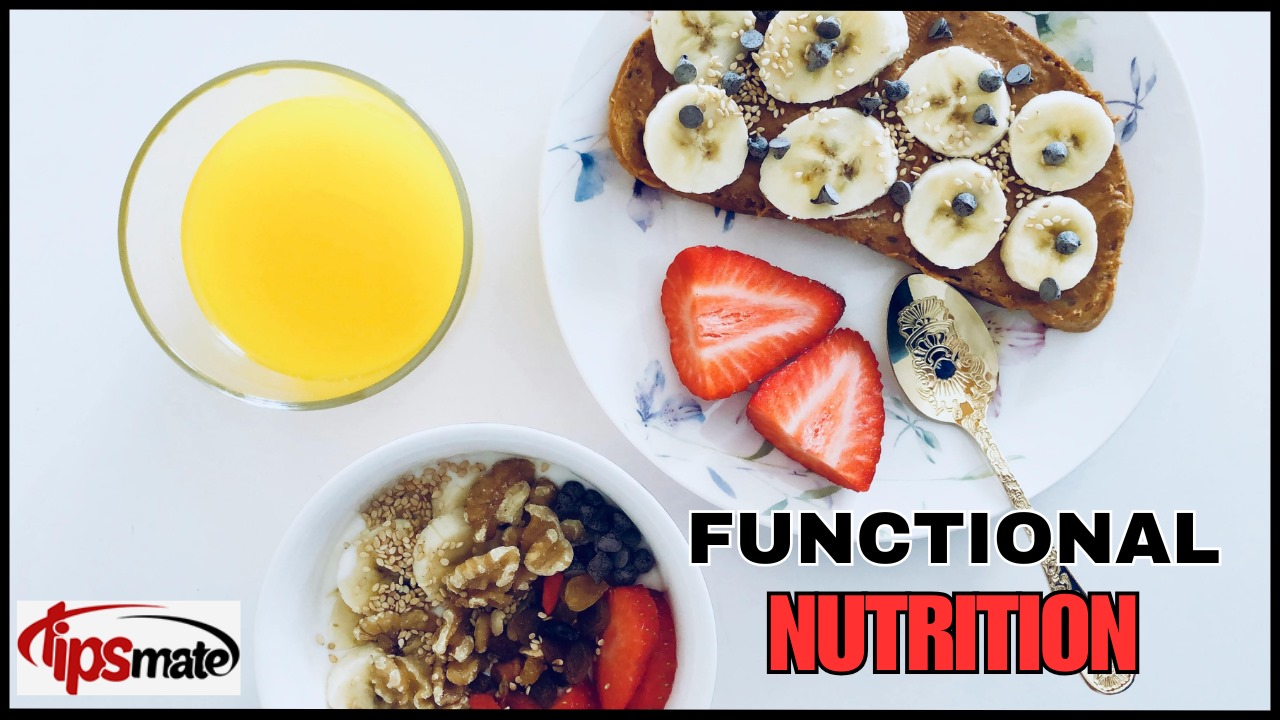Functional Nutrition
In a world where health challenges such as chronic diseases, digestive issues, and hormonal imbalances are on the rise, the focus on personalized health solutions has never been more critical. Functional nutrition, a revolutionary approach to wellness, goes beyond the traditional "one-size-fits-all" dietary guidelines. It emphasizes understanding an individual's unique needs and using food as a powerful tool to target specific health issues while promoting overall well-being. This article explores the transformative potential of functional nutrition, demonstrating how the right dietary choices can address health concerns and contribute to a healthier, more balanced life.
Understanding Functional Nutrition
Functional nutrition is a holistic approach to health that recognizes the intricate relationship between diet, lifestyle, and individual well-being. Unlike traditional nutrition, which often focuses on general dietary guidelines, functional nutrition takes into account each person's unique genetic makeup, environment, and health history.
At its core, functional nutrition prioritizes bio-individuality—the concept that no two people are alike, and therefore, their dietary needs differ significantly. For instance, a diet that works wonders for one individual might be ineffective or even harmful for another. This approach seeks to uncover the root causes of health problems by addressing imbalances in the body rather than merely managing symptoms.
By emphasizing nutrient-dense, whole foods tailored to individual needs, functional nutrition aims to restore balance and promote optimal health. It’s not just about what you eat but also about understanding how your body responds to the foods you consume.
How Functional Nutrition Targets Specific Health Issues
Functional nutrition is uniquely designed to address various health concerns by identifying and targeting the underlying causes through dietary choices. Here are some examples of how specific health issues can benefit from this personalized approach:
1. Gut Health
The gut is often referred to as the "second brain" due to its significant impact on overall health. Functional nutrition emphasizes the importance of a healthy gut microbiome. Probiotic-rich foods such as yogurt, kefir, and fermented vegetables restore beneficial bacteria, while fiber from fruits, vegetables, and whole grains supports digestion. For those with conditions like irritable bowel syndrome (IBS), eliminating trigger foods and incorporating soothing options like bone broth can lead to substantial improvements.
2. Inflammation
Chronic inflammation is a root cause of many diseases, including arthritis, heart disease, and autoimmune disorders. Functional nutrition combats inflammation through anti-inflammatory foods like turmeric, ginger, fatty fish rich in omega-3s, and colorful fruits and vegetables high in antioxidants. These foods help neutralize free radicals and reduce oxidative stress in the body.
3. Hormonal Imbalances
Hormones regulate many bodily functions, and an imbalanced diet can disrupt this delicate system. Functional nutrition focuses on stabilizing blood sugar levels with complex carbohydrates and healthy fats. Foods such as avocados, flaxseeds, and leafy greens are often recommended to support hormone production and balance. For women experiencing menopausal symptoms, phytoestrogen-rich foods like soy and chickpeas can be beneficial.
4. Chronic Diseases
Conditions like diabetes, hypertension, and cardiovascular diseases require targeted dietary interventions. Functional nutrition emphasizes reducing processed and high-sugar foods while promoting whole, nutrient-dense options. For example, a low glycemic diet rich in vegetables, lean proteins, and healthy fats can help manage blood sugar levels in people with diabetes.
By addressing these specific health concerns with a tailored diet, functional nutrition not only manages symptoms but also supports long-term health improvement.
Functional Foods for Wellness
Functional foods are at the heart of functional nutrition. These are nutrient-rich foods that provide health benefits beyond basic nutrition, helping to prevent or manage specific health conditions while promoting overall wellness. Incorporating these foods into your diet can be transformative for physical and mental well-being.
1. What Are Functional Foods?
Functional foods are natural or fortified with additional nutrients to enhance their health benefits. Examples include:
- Superfoods: Berries, chia seeds, and quinoa packed with antioxidants, vitamins, and minerals.
- Fortified Foods: Milk fortified with vitamin D or orange juice with added calcium.
- Fermented Foods: Yogurt, kimchi, and kombucha that promote gut health.
2. Examples of Functional Foods and Their Benefits
- Green Tea: Rich in polyphenols, it supports heart health and improves focus.
- Garlic: Contains allicin, known for boosting immunity and reducing cholesterol.
- Leafy Greens: Spinach and kale are loaded with vitamins A, C, and K, supporting bone health and reducing inflammation.
- Berries: Blueberries, raspberries, and strawberries are high in antioxidants, which protect cells from damage and support brain health.
- Nuts and Seeds: Almonds and flaxseeds provide healthy fats, fiber, and essential nutrients that benefit the heart and hormones.
By incorporating these functional foods into daily meals, individuals can support their bodies in fighting disease, maintaining energy levels, and enhancing overall vitality.
Personalized Nutrition Plans for Optimal Wellness
One of the key principles of functional nutrition is the personalization of dietary plans to suit individual needs. Each person's health, lifestyle, and goals are unique, making a one-size-fits-all approach inadequate for achieving optimal wellness.
1. Factors Influencing Personalized Nutrition
- Age and Gender: Nutritional needs vary based on life stages and biological differences. For example, children need nutrient-dense foods for growth, while older adults may require calcium and vitamin D to support bone health.
- Lifestyle and Activity Levels: Active individuals benefit from diets rich in proteins and complex carbs, while sedentary lifestyles may require fewer calories and more emphasis on fiber.
- Health Conditions: Chronic diseases, food allergies, and intolerances necessitate tailored dietary interventions to address specific concerns.
2. Role of Professional Guidance
Working with a nutritionist or healthcare professional is crucial for designing an effective plan. Professionals assess health history, identify deficiencies, and recommend foods that align with individual goals. They also monitor progress and make adjustments as needed.
3. Benefits of Personalization
- Ensures the body gets the nutrients it needs.
- Reduces the risk of diet-related health problems.
- Enhances energy levels and overall quality of life.
- A personalized approach helps individuals build a sustainable relationship with food, leading to long-term health benefits.
Tips for Adopting Functional Nutrition
Integrating functional nutrition into your lifestyle doesn’t have to be overwhelming. Here are some practical tips to get started:
1. Start with a Food Diary
Track your meals and note how certain foods make you feel. This can help identify patterns and potential triggers for discomfort or energy dips.
2. Focus on Whole, Unprocessed Foods
Prioritize fresh fruits, vegetables, lean proteins, whole grains, and healthy fats over processed options. This ensures you consume nutrient-dense meals.
3. Incorporate Changes Gradually
Rather than overhauling your entire diet at once, introduce small, manageable changes. Replace sugary snacks with nuts or add a portion of vegetables to every meal.
4. Stay Hydrated
Water plays a critical role in overall health, aiding digestion, detoxification, and energy levels.
5. Seek Professional Advice
Consult a functional nutritionist to develop a plan tailored to your specific health concerns and goals.
These small, intentional steps can make a significant difference in overall health and wellness.
Challenges and Misconceptions
While functional nutrition offers immense benefits, some challenges and misconceptions can hinder its adoption. Understanding these obstacles can help individuals make informed decisions and embrace this approach effectively.
1. Challenges
- Time and Effort: Preparing nutrient-dense, whole-food meals can require more time and effort than relying on processed or convenience foods.
- Cost Concerns: There is a perception that functional nutrition is expensive due to the focus on high-quality, organic ingredients. However, smart shopping strategies, such as buying seasonal produce, can mitigate costs.
- Lack of Awareness: Many people are unaware of the connection between diet and specific health issues, making it harder to adopt targeted dietary interventions.
2. Misconceptions
- It’s Only for Chronic Illness: While functional nutrition is highly effective for managing chronic conditions, it is equally beneficial for preventing diseases and maintaining general wellness.
- Restrictive and Difficult: Functional nutrition emphasizes balance and flexibility. It’s about finding the right foods that work for you, not adhering to rigid diets.
- Quick Fix: Functional nutrition is a long-term approach that focuses on sustainable changes rather than immediate results.
By addressing these challenges and debunking misconceptions, more individuals can embrace functional nutrition and reap its benefits.
Conclusion
Functional nutrition is a powerful tool for improving health and well-being by addressing individual dietary needs. Its personalized approach allows individuals to target specific health issues, prevent chronic diseases, and enhance overall vitality. By incorporating functional foods, embracing a personalized nutrition plan, and making gradual lifestyle adjustments, anyone can benefit from this holistic approach.
Although challenges like time and cost may arise, the long-term benefits of functional nutrition far outweigh these initial hurdles. Whether you're managing a health condition or striving to optimize your wellness, functional nutrition provides a sustainable path toward a healthier, more balanced life.















